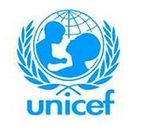UNICEF: Difference between revisions
| Line 25: | Line 25: | ||
'''UNICEF (United Nations Children Fund)''' is an international charitable institution and a member of the United Nations Development Group Executive Committee.<ref>[http://www.undg.org/index.cfm?P=23 United Nations Development Group]</ref> Its mandate is to lead the advocacy in protecting the rights of children worldwide, to help provide their needs and increase their opportunities to reach their full potential. UNICEF supports and promotes the Convention on the Rights of the Child in more than 190 countries and territories through country programmes and National Committees.<ref>[http://www.unicef.org/about/who/index_introduction.html About UNICEF-Who We Are]</ref> The organization carry out its mission in helping children worldwide to survive and thrive by accepting donations and creating partnerships with government and private entities regardless of race, religion, ethnicity or political beliefs as long as they share UNICEF's mandate, values, principles and policies.<ref>[http://www.unicef.org/media/media_48207.html UNICEF Partnerships]</ref> In 2010, UNICEF reported more than $3.6 billion income and spent around $3.4 billion on numerous programs and $276 million on program support, administration and security. Almost 50 percent of its program expenditures serve the dis-advantaged children located in sub-Saharan Africa and 25% in Asia. The least developed countries with humanitarian needs and suffering from high child mortality rates are the primary beneficiaries of the UNICEF program funds such as Democratic Republic of the Congo, Haiti, Pakistan and Sudan. <ref>[http://www.unicef.org/publications/files/UNICEF_Annual_Report_2010_EN_052711.pdf UNICEF Annual Report 2010]</ref> | '''UNICEF (United Nations Children Fund)''' is an international charitable institution and a member of the United Nations Development Group Executive Committee.<ref>[http://www.undg.org/index.cfm?P=23 United Nations Development Group]</ref> Its mandate is to lead the advocacy in protecting the rights of children worldwide, to help provide their needs and increase their opportunities to reach their full potential. UNICEF supports and promotes the Convention on the Rights of the Child in more than 190 countries and territories through country programmes and National Committees.<ref>[http://www.unicef.org/about/who/index_introduction.html About UNICEF-Who We Are]</ref> The organization carry out its mission in helping children worldwide to survive and thrive by accepting donations and creating partnerships with government and private entities regardless of race, religion, ethnicity or political beliefs as long as they share UNICEF's mandate, values, principles and policies.<ref>[http://www.unicef.org/media/media_48207.html UNICEF Partnerships]</ref> In 2010, UNICEF reported more than $3.6 billion income and spent around $3.4 billion on numerous programs and $276 million on program support, administration and security. Almost 50 percent of its program expenditures serve the dis-advantaged children located in sub-Saharan Africa and 25% in Asia. The least developed countries with humanitarian needs and suffering from high child mortality rates are the primary beneficiaries of the UNICEF program funds such as Democratic Republic of the Congo, Haiti, Pakistan and Sudan. <ref>[http://www.unicef.org/publications/files/UNICEF_Annual_Report_2010_EN_052711.pdf UNICEF Annual Report 2010]</ref> | ||
==Background== | ==Background== | ||
The United Nations General Assembly established the United Nations International Children’s Emergency Fund (UNICEF) on December 11, 1946 to provide immediate | The United Nations General Assembly established the United Nations International Children’s Emergency Fund (UNICEF) on December 11, 1946 to provide immediate food and health care services to children and adolescents in countries devastated during World War II without discrimination due to race, creed, nationality, status or political belief. Maurice Pate was appointed as the first Executive Director of the organization. <ref>[http://www.unicef.org/about/history/index_milestones.html UNICEF History]</ref> | ||
== Activities== | == Activities== | ||
Revision as of 00:27, 30 May 2012
 | |
| Type: | Organization |
| Industry: | Public Services/Policy Dev't. |
| Founded: | 1946 |
| Founder(s): | United Nations |
| Headquarters: | UNHQ New York |
| Country: | USA |
| Website: | www.unicef.org |
| Facebook: | UNICEF |
| Twitter: | |
| Key People | |
| Anthony Lake, UNICEF Executive Director | |
UNICEF (United Nations Children Fund) is an international charitable institution and a member of the United Nations Development Group Executive Committee.[1] Its mandate is to lead the advocacy in protecting the rights of children worldwide, to help provide their needs and increase their opportunities to reach their full potential. UNICEF supports and promotes the Convention on the Rights of the Child in more than 190 countries and territories through country programmes and National Committees.[2] The organization carry out its mission in helping children worldwide to survive and thrive by accepting donations and creating partnerships with government and private entities regardless of race, religion, ethnicity or political beliefs as long as they share UNICEF's mandate, values, principles and policies.[3] In 2010, UNICEF reported more than $3.6 billion income and spent around $3.4 billion on numerous programs and $276 million on program support, administration and security. Almost 50 percent of its program expenditures serve the dis-advantaged children located in sub-Saharan Africa and 25% in Asia. The least developed countries with humanitarian needs and suffering from high child mortality rates are the primary beneficiaries of the UNICEF program funds such as Democratic Republic of the Congo, Haiti, Pakistan and Sudan. [4]
Background
The United Nations General Assembly established the United Nations International Children’s Emergency Fund (UNICEF) on December 11, 1946 to provide immediate food and health care services to children and adolescents in countries devastated during World War II without discrimination due to race, creed, nationality, status or political belief. Maurice Pate was appointed as the first Executive Director of the organization. [5]
Activities
The organization is focused on five major areas:
- Child Survival and Development
- Basic Education and Gender Equality
- HIV/AIDS Prevention and Treatment
- Child Protection from Abuse
- Exploitation and Violence and Policy Advocacy and Partnership.

